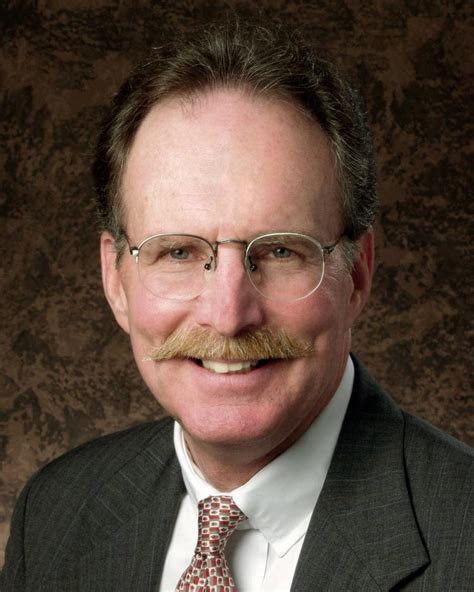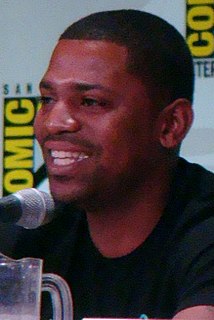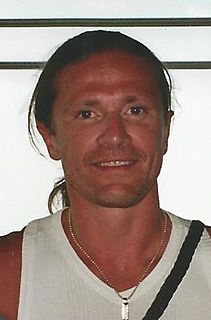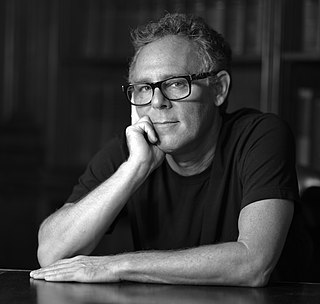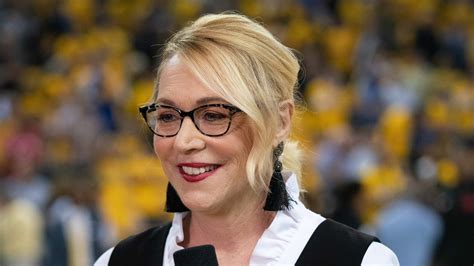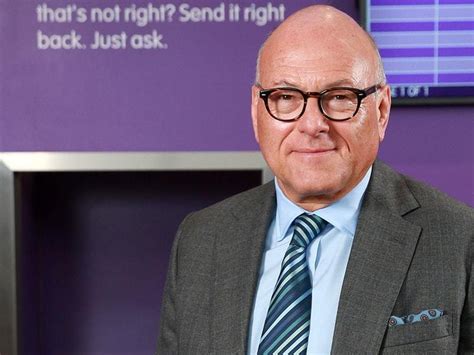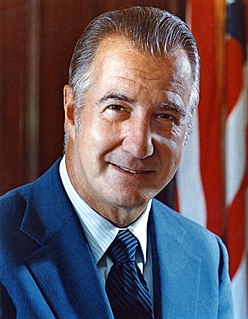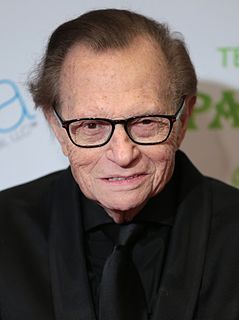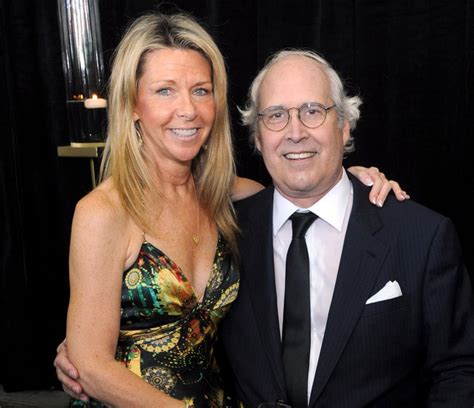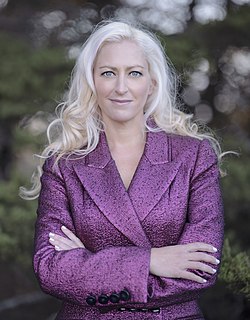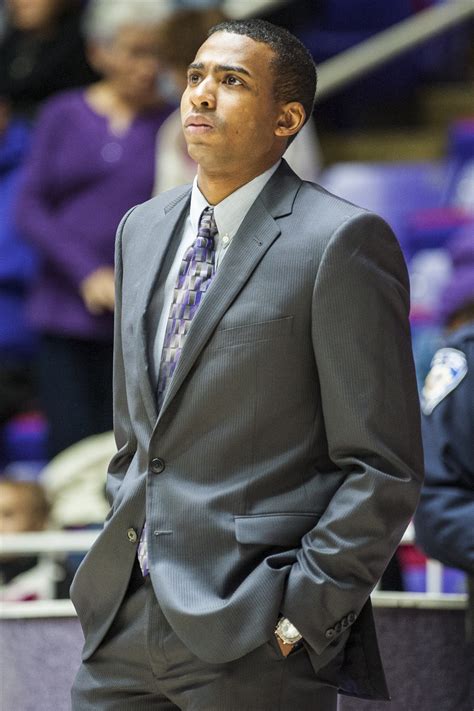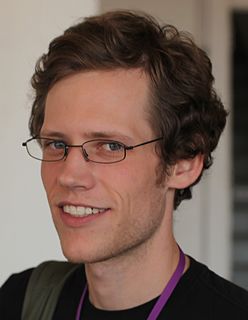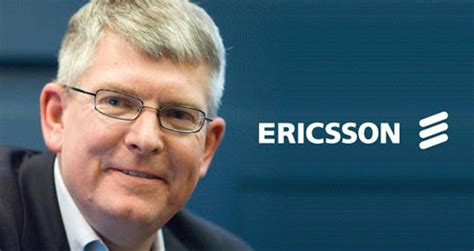Top 849 Networks Quotes & Sayings - Page 12
Explore popular Networks quotes.
Last updated on November 9, 2024.
As Barbara Streisand discovered, adopting a militaristic posture against a tech-savvy mob of civil libertarians is not going to be of much help: Many of them run their own servers and blogs - and have thousands of friends on their social networks - so overzealous attempts to silence them only lead to wider dissemination of sensitive information.
It used to be a given that the talent and the talent agencies would line up around the broadcast pitch season first and then take whatever was still available out to cable. I hate to say it, but it's just not going down that way anymore. There are things that are bypassing the broadcast networks altogether.
We're not just social animals in the conventional way that people think. It's not just a bunch of us who hang out together. We have a very specific pattern of ties, and they have a particular shape and structure that is encoded in our genes. It means that human beings have evolved to live their lives embedded in social networks.
In today's social business marketplace Facebook is one of the best places for nonprofits to be discovered and connect with a larger audience on the basis of shared values. So to get started, a non-profit should launch a Facebook page and invite your existing real world community to connect your cause and their networks.
The networks are different so they have a different approach. Obviously, with The Shield - that was on FX so they had a little bit more leeway as far as the dialogue was concerned and even the content and what they showed the viewers, which is a great thing. But we will push it to the limit as far as FOX will let us go; that's for damn sure.
The way that we're consuming what we watch. Netflix, binge-watching, destination agnostic were not terms. It was about networks, times, dates. Even with feature films, you had to see it this way, in this capacity, at this time. All that has changed. Now it's really about the story. It's a gift that I became a storyteller at this time.
Keep in mind, the web existed for almost a decade before social networks became pervasive. Even though the technology was available to make a social network in around 1995, it simply didn't happen until somebody had the idea to do it, do it big, and do it with a certain level of quality a decade later.
Even if we give first priority to the destruction of terrorist networks, and even if we succeed, there are still governments that could bring us great harm. And there is a clear case that one of these governments in particular represents a virulent threat in a class by itself: Iraq. As far as I am concerned, a final reckoning with that government should be on the table.
Now an audience of more than 1 billion people is only a click away from every voice online, and remarkable stories and content can gain flash audiences as people share via social networks, blogs and e-mail. This radically equalizes the power relationship between, say, a blogger and a multibillion dollar corporation.
In the networks' endless pursuit of controversy, we should ask what is the end value ... to enlighten or to profit? What is the end result ... to inform or to confuse? How does the ongoing exploration for more action, more excitements, more drama, serve our national search for internal peace and stability.
Bloggers and other flavors of lone wolf are publishing heart-wrenching photo-essays from the front line of the recovery effort. Newspapers and TV networks? They're writing about the temperature of the water in some part (they don't specify which) of some damaged reactor, illustrating it with video screen grabs of machinery they don't understand enough to explain.
Innovation is fostered by information gathered from new connections; from insights gained by journeys into other disciplines or places; from active, collegial networks and fluid, open boundaries. Innovation arises from ongoing circles of exchange, where information is not just accumulated or stored, but created. Knowledge is generated anew from connections that weren't there before.
Researchers looked at news programs on major broadcast and cable networks between 2008 and 2012 and found that of those labeled as domestic terrorists, 81% were identifiable as Muslims - this despite the fact that FBI reports from the period studied revealed that only 6% of domestic terrorist suspects were Muslim.
In the future, I think it's pretty plausible that collective intelligence tools and skills will be important in order to be a part of global dialog, global business, and global creativity. People who know how to negotiate collective intelligence networks are going to be in a good position to contribute to global society.
We're all just a bundle of habits shaped by our memories. And to the extent that we control our lives, we do so by gradually altering those habits, which is to say the networks of our memory. No lasting joke, or invention, or insight, or work of art was ever produced by an external memory. Not yet, at least.
I just thought making machines intelligent was the coolest thing you could do. I had a summer internship in AI in high school, writing neural networks at National University of Singapore - early versions of deep learning algorithms. I thought it was amazing you could write software that would learn by itself and make predictions.
The Kremlin hacked our presidential election, is waging a cyberwar against our NATO allies, and is probing opportunities to use similar tactics against democracies worldwide. Why, then, are federal agencies, local and state governments, and millions of Americans unwittingly inviting this threat into their cyber networks and secure spaces?
The really interesting moment will be when you have a critical mass of people engaging through the networks, more than through the press and TV. When that happens, the culture of politics has to change, moving away from controlled one-way messages towards a political culture that is more questioning.
I feel like if we can use the combination of basically data-driven hunches and bet on really first-class talent to deliver the shows, that I think we could do as well as the networks do, who basically have a 75 to 80 percent failure rate for new shows anyway - even after all that development and pilot work.
Since terrorists are pouring into Iraq in response to calls from international terrorist networks, the number of those who are killed is especially important, for these are people who will no longer be around to launch more attacks on American soil. Iraq has become a magnet for enemies of the United States, a place where they can be killed wholesale, thousands of miles away.
Many of the countries outpacing the United States in the deployment of high speed Internet services, including Canada, Japan and South Korea, have successfully combined municipal systems with privately deployed networks to wire their countries, .. As a country, we cannot afford to cut off any successful strategy if we want to remain internationally competitive.
Back, you know, a few generations ago, people didn't have a way to share information and express their opinions efficiently to a lot of people. But now they do. Right now, with social networks and other tools on the Internet, all of these 500 million people have a way to say what they're thinking and have their voice be heard.
As kids, we say stupid things, and because there's not a record of it, nobody is going to give you a hard time at 30 years old about something you said or did when you were 8 years old. Online, you have all these social networks that are moving to a state of persistent identity, and in turn, we're sacrificing the ability to be youthful.
We are ready to build large underground gas storages in Turkey, to participate in the privatization of Turkey's gas-distribution networks, to use the existing and participate in the construction of new pipelines in order to supply our energy resources through Turkey to third countries, including in southern Europe
We need a global approach to this from all sides. We need to educate people, we need the scientists to create new technologies, we need the engineers to create the networks, we need every human being to be aware of how precious water is and save it. Everybody has to be involved in a very firm and assertive way.


